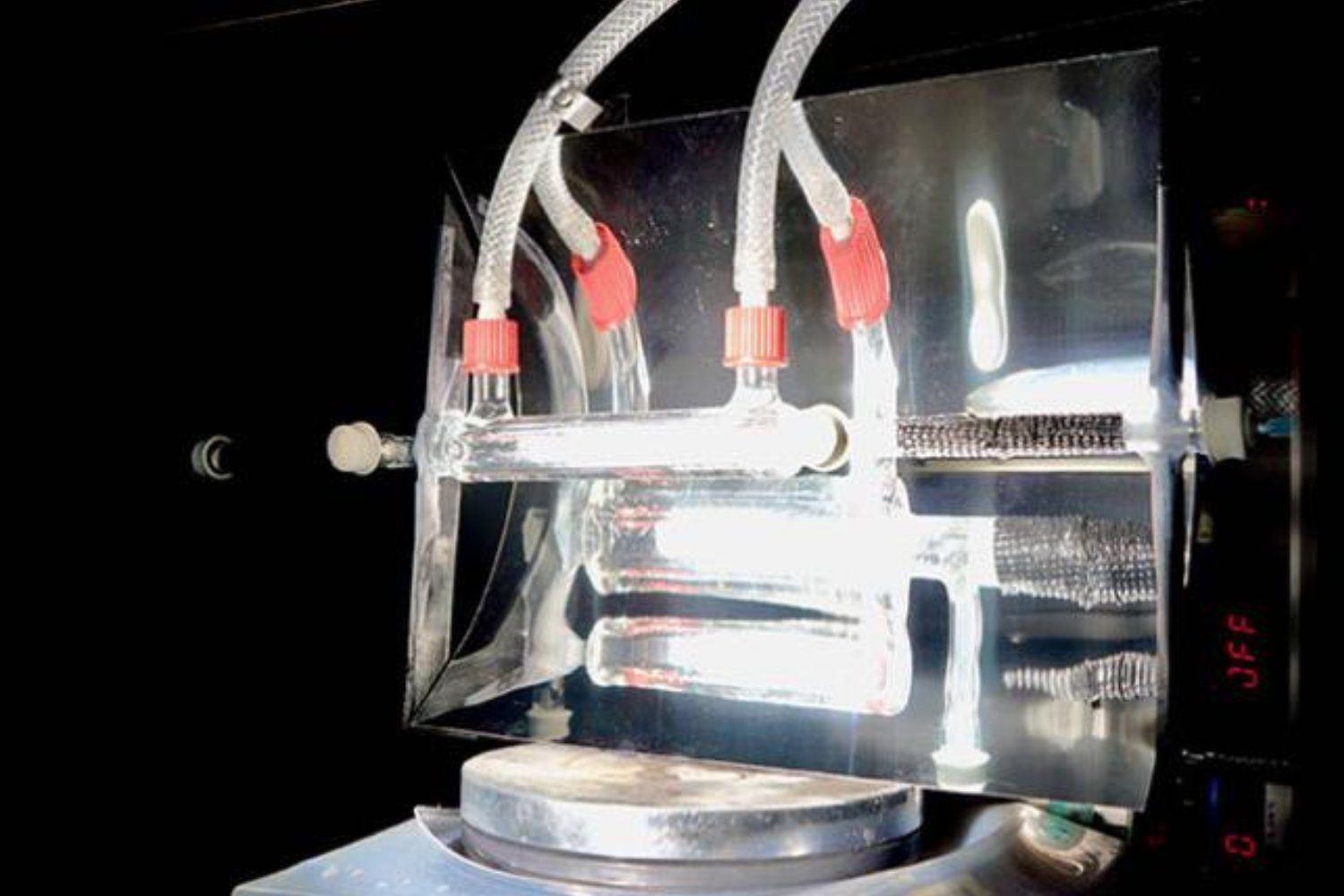
Scientists from the University of Cambridge have developed an innovative solar-powered reactor capable of transforming carbon dioxide (CO2) from the atmosphere into a gas that could potentially serve as fuel for vehicles, supply energy to off-the-grid homes, and even support pharmaceutical production in the future.
Drawing inspiration from the natural process of photosynthesis, the researchers assert that their new technology can be scaled up more efficiently than previous solar-powered solutions. Their findings were recently released in the journal Nature Energy.
Carbon capture and storage (CCS) offers a promising approach to mitigate greenhouse gas emissions. However, many existing carbon capture technologies rely on fossil fuel combustion for energy, and the captured CO2 must be stored in locations such as deep geological formations. The new reactor developed by Cambridge researchers may address these challenges.
“What if, instead of sequestering carbon dioxide underground, we could create something valuable from it?” asked Sayan Kar, a chemist at Cambridge and the lead author of the study, in a university statement. “While CO2 is a detrimental greenhouse gas, it can be transformed into functional chemicals without further contributing to global warming.”
The team’s solar reactor operates independently of power sources like cables or batteries. At nighttime, it extracts CO2 from the air, functioning akin to a sponge absorbing water. When the sun rises, the accumulated CO2 is heated, allowing it to absorb infrared radiation, while a semiconductor powder captures ultraviolet light. A reflective mirror enhances the system’s efficiency by concentrating sunlight.
This absorption triggers a chemical process that converts CO2 into synthesis gas (syngas), a combination of carbon monoxide (CO) and hydrogen (H2), which is crucial in creating various fuels and chemicals. The research team is currently exploring methods to convert this solar-generated syngas into liquid fuels that could ultimately provide a sustainable solution for powering cars, planes, and more.
The researchers believe that such solar reactors could be utilized by individuals rather than just powering whole communities, delivering energy to remote areas. Additionally, utilizing solar syngas in chemical production could significantly reduce the carbon footprint of the industry.
With any luck, we might soon see cars powered by solar carbon capture reactors on the market sooner than we anticipate.









